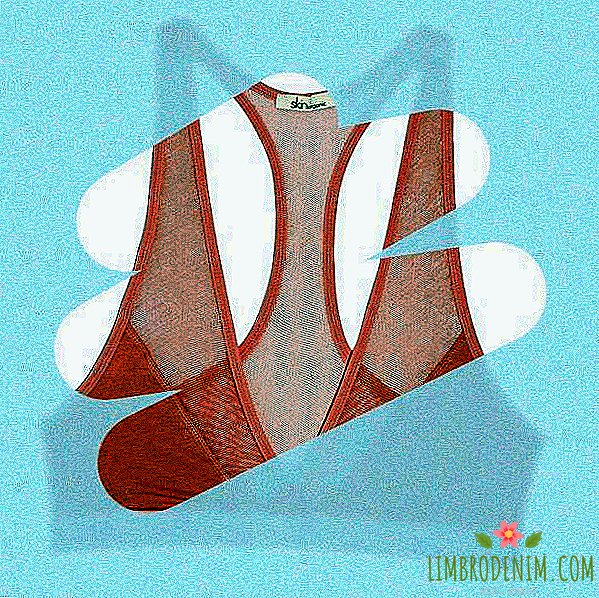To letter, road or money: Is it possible to trust interpreters of dreams
Dreams always seemed to people to be something like a miracle in reality: scientists still do not have a unanimous opinion of where they come from, why they are needed and, most importantly, what they mean. Earlier, when people poorly represented the structure of the human psyche, dreams were considered either a continuation of reality or the prophetic signs of gods. We understand how they interpreted dreams before and how they are trying to analyze them today.
Text: Margarita Kokovikhina

Signs of the gods and therapeutic sleep
The tradition of interpreting dreams existed among ancient civilizations around the world, but it is believed that the first professional interpreters appeared in Mesopotamia and Egypt. Actually, the dream books - collections of explanations of dreams, according to which it is proposed to study oneself or the future - were invented there, the oldest known one of about four thousand years. The Egyptians believed that in a dream, people, as well as animals, spirits and gods, find themselves in a space that existed even before the creation of the world. There the living could communicate with the dead.
Dreams were interpreted as symbols, signs of gods: for example, it was believed that if a person dreamed about how he cuts a female hippopotamus, then he “will receive food from the royal court”. And if he ghosts, as he "copulates with the female kite," then be trouble - he will soon be robbed. Omens were clearly divided into good and bad - there were even special rituals to avoid the consequences of "bad" dreams. In addition, the Egyptians tried to control the process, using special “requested” dreams to the higher forces or dead relatives. For example, people with deadly diseases were deliberately hypnotized so that they could find out their fate from the gods.
It was believed that if a person dreams about how he cuts a female hippo, then he will “get food from the royal court”. And if he ghosts, as he "copulates with the female kite," then be trouble
The tradition of the interpretation of dreams was in ancient Greece. The Greeks believed that the kings and grandees, responsible to their compatriots, see "social and cosmic" dreams in which the gods address them directly - and they do not need to be interpreted. Help in the interpretation was needed for ordinary citizens and people from lower classes, whose dreams were allegedly confused. They were investigated, relying not only on mythology, but also on everyday life and linguistic properties of sleep. Many thinkers involved in the systematization of dreams, believed that the same image for different people can mean different things. This opinion was shared, for example, by Artemidor Daldeansky, a Greek writer and thinker who lived in the II century, the author of the five-volume dream book, Onerocritica: "The floodplain meadows benefit only the shepherds, for the rest they mean unemployment, and for travelers - obstacles because these meadows are roadless. " There were also less literal interpretations of dreams - for example, Aristotle considered them a reflection of a person’s needs and the events of a bygone day.
In one form or another interpretation of dreams existed in the East. In China, there were special Taoist temples, where people came to sleep to see the future. In Mesopotamia and India, visions were also treated as predictions - in the sacred Hindu text “Atharvaveda” there is even a corresponding chapter. The idea of dreaming as divine revelation is often found in the Old Testament, and the prophet Muhammad banned the practice of interpreting dreams altogether - it influenced the daily lives of people so much.
Dream and church
Later, in the Middle Ages, when dream-books began to spread throughout Europe, interpretation became a real craft despite the protests of the church. Researchers divide the books with which they interpreted visions into four types. In the first case, the Bible and the hymnal were most often used: the person who had a dream chose a letter at random, and then with the help of a dream book, figured out what it might mean. Other books explained the importance of dreams regarding health (they could have been used by doctors for diagnosis) or correlated with the phases of the moon. Finally, the most common were dream books, close to modern ones - they described popular scenes and their meanings. More often than others, they turned to the "Dream of Daniel", written around the 9th century by an unknown author and based, most likely, on "Onecriticism."
The Orthodox Church has always treated dreams ambiguously: on the one hand, in the sacred texts it is mentioned that God can come in a dream, on the other - it is explained that not all dreams are meaningful. The canon urges not to look for signs specifically, since the righteous confront the divine revelation in the first place, and the person who sees the divine dream will understand its meaning without additional interpretations.
The righteous confront the divine revelation in the first place, and the person who sees the divine dream will understand its meaning without additional interpretations.
Despite the fact that dream books in Russia have existed for a long time, the practice of this kind of divination is little studied. Moreover, between 1765 and 1830 more than a hundred such books were printed - and even if many of them were reprints, this says a lot about the popularity of the genre (even Pushkin in Eugene Onegin mentions that Tatiana reads the dream book of Martyn Zadeka, ironically over the heroine). Dreams in the XVIII century were very different - for example, astrological, where the meaning of sleep was associated with the sign of the zodiac, or alphabetic, where the values were given in order. Many of the latter were variations of the same "Dream of Daniel", some - the interpretation of "Oneirokritik". Researchers note that at first, wealthy people were primarily interested in sleepers, but by the end of the 18th century they became widely available, largely due to the increased literacy rate.

Freud and psychoanalysis
Today, we no longer believe that dreams are a gift from the gods or a portal to the world of the dead, but it is difficult to explain unequivocally why they are needed after all, even to scientists. Experts hold different views: some believe that in dreams it may not make any sense at all - that this is an epiphenomenon, that is, a phenomenon accompanying the REM phase. Others, on the contrary, argue that dreams can be interpreted - naturally, from a scientific point of view.
The most famous theory about dreams belongs to Sigmund Freud - the psychoanalyst believed that dreams reveal our repressed desires and hidden aspirations. Freud distinguished conventionally "childish" and "adult" dreams. Children often see simple and understandable plots, which are closely related to what happened during the day - adult dreams, on the contrary, often seem strange and confusing. Freud was sure that from any images, no matter how insignificant or stupid they seemed, you can build a logical chain to come up with coherent ideas.
The psychiatrist Ernest Hartmann, one of the founders of "The Modern Theory of Dreams", claims that nightmares help the brain to digest information and cope with stress
The psychologist analyzed his own dreams a lot. For example, about one, seemingly unclear, he says: “Society at the table or table d'hote. Eating spinach ... Mrs. EL L. sits next to me, turning to me all, and friendly puts her hand on my knee. I , moving away, I remove her hand. Then she says: “And you always had such beautiful eyes ...” After that, I do not clearly distinguish between two eyes in a drawing or a glass contour from glasses ... “Trying to understand the meaning, Freud remembers every detail and selects associations for her - for example, she considers that Mrs. EL. in a dream "replaced" his wife, with toruyu Freud was at that moment hurt due to lack of attention. The heroine of the dream, on the contrary, shows sympathy for him. Freud believed that sleep can be a reflection of our desires, which we ourselves have not yet admitted.
Science and sleep
Despite the popularity of Freud's ideas at one time, today they are treated with a skepticism, and psychoanalysis itself has changed a lot - now it’s rather a lot of modifications of therapy combined by means of interpretation. Ideas are also developing: in the modern method, the idea that the unconscious is connected exclusively with the libido and “envy of the penis” seems to be outdated.
In addition, other theories have appeared over time. For example, psychologist Mark Blencher believes that in a dream our thoughts sort of go through "natural selection": they arise randomly and erratically, intertwine and "mutate" - but only those that seemed to the mind useful will remain in memory. In his opinion, sleep teaches us how to react emotionally to problem situations: good solutions will be recorded in memory so that we can use them in reality. If you believe another hypothesis, dreams help people cope with negative emotions: psychiatrist Ernest Hartmann, one of the founders of the “Modern Theory of Dreams”, argues that people experiencing difficult events often have nightmares in their dreams that help the brain to digest information and cope stress.
Such an experience turns out to be the only opportunity for a modern person to touch the "magic" - something that is difficult to explain, and even more so - to control
Some scientists suggest that dreams can be a way to better remember information: a 2010 study showed that people who needed to go through a maze did a better job if they had slept a little before and had dreams. Another theory says that dreams, on the contrary, help us to forget the unnecessary - that this is just a process of processing data. Many experts believe that we need dreams in order to maintain brain activity or work out reflexes - every year there are more and more assumptions about why we see dreams, but to give a definite answer is, alas, difficult. But why people remain so fascinated by visions that they continue to look for signs in them to this day, it’s more or less clear: during sleep we don’t seem to belong to ourselves and this experience turns out to be the only opportunity for a modern person to touch the “magic” - something that is difficult to explain, and even more so - to check.
Photo: nerthuz - stock.adobe.com (1, 2)





